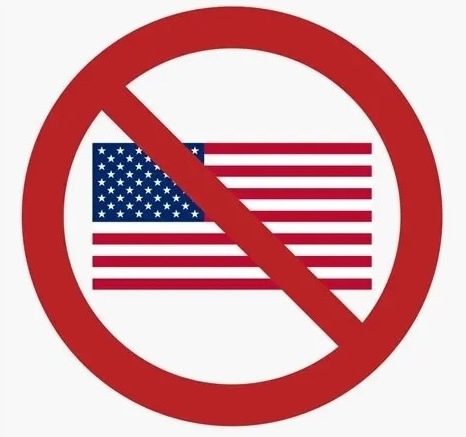

On a quick drive around the small Ohio town of Delta, you can spot nearly as many Trump flags as American stars-and-stripes banners.
And at the petrol station near the Ohio Turnpike, the pumps bear relics of the last administration, with slogans slamming Trump’s predecessor: “Whoever voted for Biden owes me gas money!”
This is Trump country - the Republican ticket easily won here in November’s presidential election by a margin of almost two-to-one. And while the markets are in turmoil following Trump’s unveiling of expansive global tariffs this week, plenty of people in Delta and hundreds of Midwestern towns like it still back the president’s plans.
Those plans, to impose tariffs of between 10% and 50% on almost every country, have upended global trade and led to warnings that prices could soon rise for American consumers. Trump, meanwhile, has said the move will address unfair trade imbalances, boost US industry and raise revenue.
For some in Delta, the president’s argument about fairness resonates.
“I don’t want people in other countries to suffer, I really don’t,” said Mary Miller, manager of the Delta Candy Emporium, which sits in the middle of the village’s Main Street. “But we need to have an even playing field.”
Miller, a three-time Trump voter, believes other countries haven’t played fair on trade. And like many here, she prefers to buy American-made goods.
As she watches over her stock of multi-coloured confectionaries, many of them made in the US, and weighs up how they might be impacted by fresh import taxes, she recalls how decades ago she heard that one of her favourite brands was moving its factories abroad. She hasn’t bought another pair of Levi’s jeans since.
Miller is unfazed by the possibility of price increases, which many economists say these new tariffs will bring.
“Sometimes you have to walk through fire to get to the other side,” she said.
“If tariffs bring companies and business back to hard-working American people like the ones who live here, then it’s worth it.”
These sentiments are common in Delta, a village of around 3,300 people less than 100 miles (160km) south of Detroit, even as other Midwestern towns brace for sharp shocks.
The automotive industry, with its complicated global supply chains, seems particularly vulnerable to the impact of major new tariffs, with companies in Michigan to the north and Indiana to the west already announcing factory shutdowns and job cuts.
But on the outskirts of Delta, there is a cluster of steel businesses that have been here since the 1990s and which may be better placed in a new era of American protectionism.
One of these businesses, North Star BlueScope, has urged Trump to expand tariffs on steel and aluminium.
At the same time, however, it has asked for an exemption for the raw materials it needs, such as scrap metal.
North Star BlueScope did not respond to interview requests, but in a back room at the nearby Barn Restaurant, a few local steelworkers who had just finished the night shift were drinking beers together early on Friday morning.
The workers, who asked not to be named, mostly laughed and shrugged when asked about the sweeping new tariffs that were announced by Trump at the White House on Wednesday.
It was a pretty clear indication that this economic news is unlikely to ruin their weekend.
Outside the restaurant, some Delta locals considered the possible upsides of these import taxes.
“Nobody’s frantic. We’re not going to lose any sleep over it,” said Gene Burkholder, who has a decades-long career in the agriculture industry.
Although he owns some stocks, Mr Burkholder said they were long-term investments and he was not obsessing over the sharp drops in the two days following the president’s announcement.
“If you have some spare cash, maybe it’s a good time to buy some shares while they’re cheap,” he said.






Actually I think they had a kind of committee to decide what was “scripture” and what wasn’t.